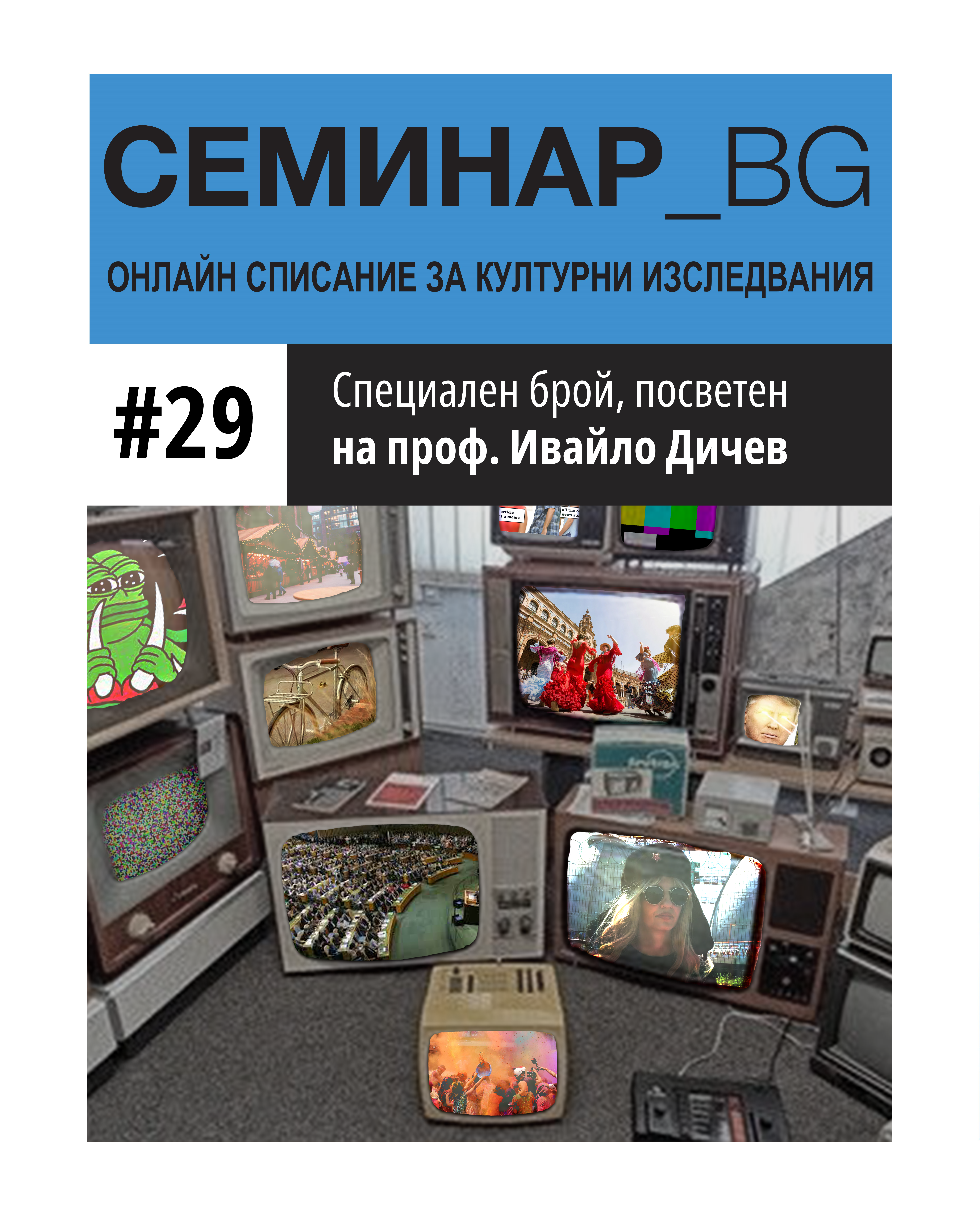Облаци на хоризонта
За корпорациите, феодализма и понякога демокрацията
DOI :
https://doi.org/10.60054/SBG.2025.29.87-103Ключови думи :
платформен феодализъм, технофеодализъм, облак, дигитален суверенитетРезюме
В последните години все повече автори анализират ролята на дигиталните медии в политиката, като прибягват до сравнения с феодализма. При това става дума за автори от различни национални контексти и от различни дисциплини като антропология, икономика, политология и пр. Настоящата статия прави опит за първоначална систематизация на тези сравнения с феодалната епоха, като очертава два основни подхода. Първият подход въвежда понятието „платформен феодализъм“, за да опише властовите отношения между дигитални платформи (за комуникация или търговия) и техните потребители. Вторият подход говори за „технофеодализъм“, за да опише властовите отношения между корпорации, техните потребители и държавната власт. Първият подход изследва в дълбочина историческия възход на новите дигитални платформи, както и практиките на техните потребители и последствията от тях за публичната сфера. Вторият подход изследва прехода от платформена власт към инфраструктурна доминация на някои платформи (AWS, Google и Microsoft) и следва първия хронологично, защото анализира именно по-скорошния фокус на тези компании върху облака като услуга и като ключова предпоставка за тренирането на изкуствен интелект. След като очертава тези две полета на анализ, статията коментира как държавите отговарят на властовите претенции на техноплатформите в опит да защитят (с по-малък или по-голям успех) дигиталния си суверенитет. Опитите за търсене на алтернативни решения от страна на държавите обаче също не са безпроблемни, защото ролята на демократичното участие в тях засега е минимална. Така дигиталните трансформации на нашето време и новата надпревара за изграждане на дигитална инфраструктура в глобален план надвисват като облак над демокрацията.
Библиография
Дичев, И. 2022. "Платформен Феодализъм". Семинар_BG, 22. https://www.seminar-bg.eu/spisanie-seminar-bg/broy22/804-platformen-feodalizam.html. (последно посетен на 9.07.2025 г.)
Дичев, И. 2010. "Национализмът като субкултура". Семинар_BG, 4. https://www.seminar-bg.eu/spisanie-seminar-bg/broy4-tabloidnata-kultura/119-contents-broj4/486-natzionalizmat-kato-subkultura.html. (последно посетен на 9.07.2025 г.)
Дичев, И. и Спасов, О. 2009. Новите млади и новите медии. 2009. Институт Отворено общество, София.
Дичев, И. и Роне, Ю. (съст.). 2012. Новата културна геометрия: уебмрежовици, културбракониери, киберагитатори. София: Изток-Запад.
Минева. М. 2022. "Как се глобализира моралната паника?", Семинар_BG, бр. 22. https://www.seminar-bg.eu/spisanie-seminar-bg/broy22/806-kak-se-globalizira-moralnata-panika.html. (последно посетен на 9.07.2025 г.)
Роузън. Д. .2011. "Ние, хората, известни преди като аудиторията", Семинар_БГ, 6. https://www.seminar-bg.eu/spisanie-seminar-bg/broy6/122-contents-broj6/512-%D0%BD%D0%B8%D0%B5-%D1%85%D0%BE%D1%80%D0%B0%D1%82%D0%B0-%D0%B8%D0%B7%D0%B2%D0%B5%D1%81%D1%82%D0%BD%D0%B8-%D0%BF%D1%80%D0%B5%D0%B4%D0%B8-%D0%BA%D0%B0%D1%82%D0%BE-%D0%B0%D1%83%D0%B4%D0%B8%D1%82%D0%BE%D1%80%D0%B8%D1%8F%D1%82%D0%B0.html. (последно посетен на 9.07.2025 г.)
Baur, A. 2023. European Dreams of the Cloud: Imagining Innovation and Political Control. Geopolitics, 29(3), 796–820.
Biesecker, M., Mednick, S., and Burke, G. 2025. As Israel uses US-made AI models in war, concerns arise about tech’s role in who lives and who dies. Associated Press. https://apnews.com/article/israel-palestinians-ai-technology-737bc17af7b03e98c29cec4e15d0f108.
Blancato, F. G., & Carr, M. 2024. The trust deficit. EU bargaining for access and control over cloud infrastructures. Journal of European Public Policy, 1–32.
Bria, F., Timmers, P., Gernone, F., Renda, A. , Fischer, C., Grabova, O. 2025. EuroStack – A European alternative for digital sovereignty. https://www.euro-stack.info/docs/EuroStack_2025.pdf
Goldsmith, J. and Wu, T. 2006. Who Controls the Internet?: Illusions of a Borderless World. Oxford University Press.
Gorwa, R. 2024. The Politics of Platform Regulation: How Governments Shape Online Content Moderation. Oxford University Press.
Haggart, B. Iglesias Keller, C. 2021. Democratic legitimacy in global platform governance. Telecommunications Policy, ISSN 0308-5961, Elsevier, Amsterdam, 45(6).
Haggart B, Schoolte JA, Tussikov N. 2021. Introduction: return of the state? In: Haggart B, Tuskov N, Scholte JA (eds) Power and Authority in Internet Governance Return of the State? London: Routledge, pp. 1–12.
Hogan M .2015. Data flows and water woes: the Utah Data Center. Big Data & Society. Epub ahead of print 13 July.
Kotliar, D. M., & Gekker, A. 2024. Migrating the state into corporate clouds. Information, Communication & Society, 27(14), 2566–2586.
Lehdonvirta V. 2022. Cloud Empires: How Digital Platforms Are Overtaking the State and How We Can Regain Control. Cambridge, MA: MIT University Press.
Libertson, F., Velkova, J., & Palm, J. 2021. Data-center infrastructure and energy gentrification: perspectives from Sweden. Sustainability: Science, Practice and Policy, 17(1), 152–161.
Lyons, J. 2024. US government excoriates Microsoft for 'avoidable errors' but keeps paying for its products. The Register. https://www.theregister.com/2024/04/05/microsoft_government_contracts/.
Morozov, E. 2022. Critique of Techno-Feudal Reason. New Left Review, 133-134.
Nachtwey, O., & Seidl, T. 2023. The Solutionist Ethic and the Spirit of Digital Capitalism. Theory, Culture & Society, 41(2), 91-112.
Open Future. 2023. Public Digital Infrastructure. https://openfuture.eu/wp-content/uploads/2024/07/240630infrastructure_consulation_response.pdf.
Perry Barlow, J. 1996. A Declaration of the Independence of Cyberspace. Electronic Fronteer Foundation. https://www.eff.org/cyberspace-independence.
Pollet, F. 2021. French decision to have Microsoft host Health Data Hub still attracts criticism. Euractiv. https://www.euractiv.com/section/health-consumers/news/french-decision-to-have-microsoft-host-health-data-hub-still-attracts-criticism/
Powers, S. and Jablonski, M. 2015. The Real Cyber War: The Political Economy of Internet Freedom. University of Illinois Press.
Rone, J. 2023. The shape of the cloud: Contesting date centre construction in North Holland. New Media & Society, 26(10), 5999-6018.
Rone, J. 2012. Culture wide closed: Pirate monopolies, forum dictatorship and nationalism in the practice of file sharing. In Media, Knowledge And Education: Cultures and Ethics of Sharing (Wolfgang Sützl, Felix Stalder, Ronald Maier and Theo Hug, eds.), Innsbruck University Press.
Speed, R. 2021. EU digital sovereignty project Gaia-X opens its summit with the departure of Scaleway. The Register. https://www.theregister.com/2021/11/19/scaleway_gaia_x/ .
Srivastava S. Corporate Sovereign Awakening and the Making of Modern State Sovereignty: New Archival Evidence from the English East India Company. International Organization. 2022;76(3):690-712.
Treré, Emiliano. 2016. The Dark Side of Digital Politics: Understanding the Algorithmic Manufacturing of Consent and the Hindering of Online Dissidence. The Institute of Development Studies and Partner Organisations. Report. https://hdl.handle.net/20.500.12413/7697
Varoufakis, Y. 2023. Technofeudalism. What Killed Capitalism. London: Random House.
Файлове за сваляне
Публикуван
Как да цитирате
Брой
Секция
Лиценз
Авторски права (c) 2025 Семинар_BG

Публикация с Creative Commons Attribution-NonCommercial-NoDerivatives 4.0 International License.

